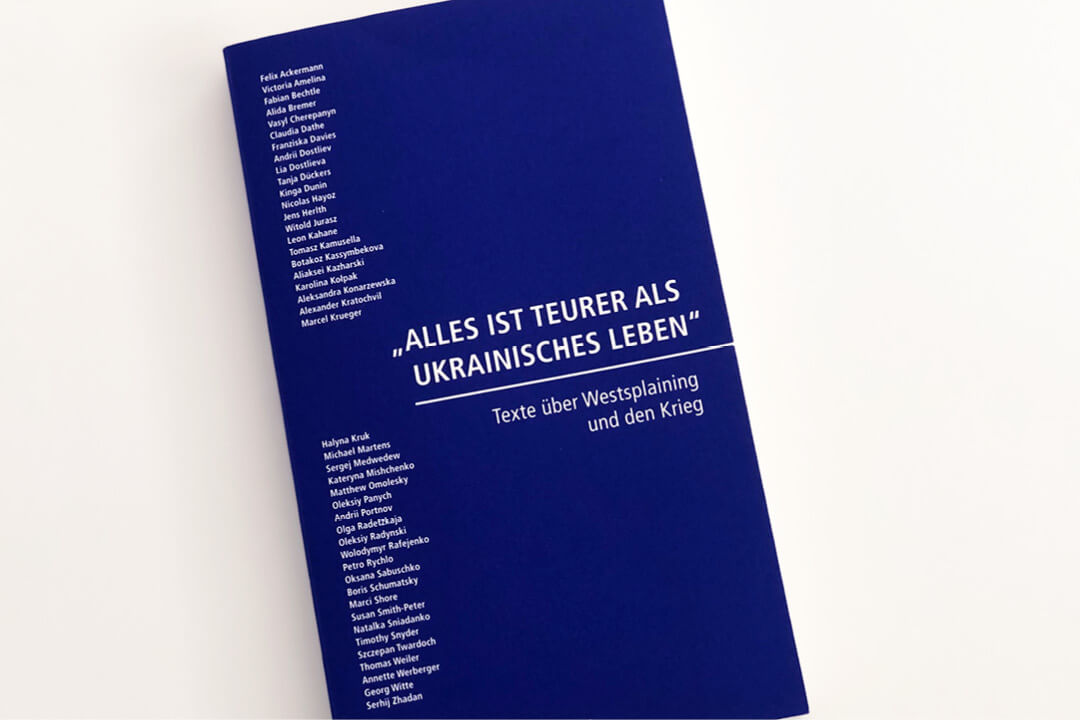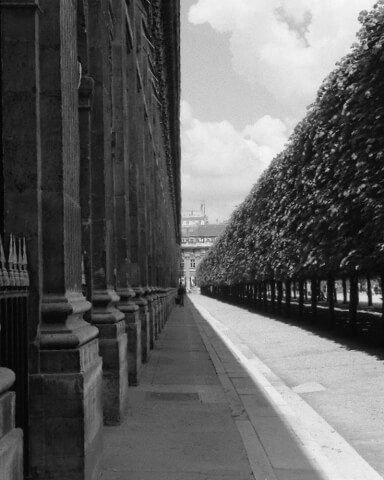Texts about Westsplaining and the war
Lyrics like tornadoes. Sad, angry, proud and unsparing. It’s worth reading them.
Have we become accustomed to the war against Ukraine?
Only prominent Ukrainian fatalities still manage to be mentioned in the sports section of the newspaper or in the feature pages: Fencer Denys Boreyko and figure skater Dymtro Sharpa, both successful athletes at international level. They are among the 262 athletes killed since the beginning of the war against Ukraine, as of April 2023, according to the Ukrainian Minister of Sport.
Just like the dancer Vadym Khlupianets, the decathlon champion Volodymyr Androshchuk and the writer Victoria Amelia, who stopped writing children’s books at the beginning of the war and instead began documenting war crimes for the Truth Hounds organization.
She had received a scholarship in France to complete her documentary “War and Justice Diary: Looking at Women Looking at War”. Shortly before she started it, she accompanied a group of writers from Colombia to Kramatorsk.
There, the pizzeria where the group of writers and war documentarians had dined was bombed and destroyed by the Russian military.
Victoria Amelia was among the victims and succumbed to her injuries shortly afterwards in hospital. Her death was reported in the arts pages from Washington to Zurich.
In the Neue Zürcher Zeitung, the Colombian writer Héctor Abad reports on their last evening together in Kramatorsk under the title: “A week ago, a Russian Iskander missile killed the Ukrainian writer Viktoria Amelia in front of my eyes. I owe it to justice to write about this crime”
If you would like to find out more about this impressively optimistic, humorous and committed young woman, we recommend the Guardian’s obituary. It also publishes her essay “I was the worst investment the Russians ever made”.
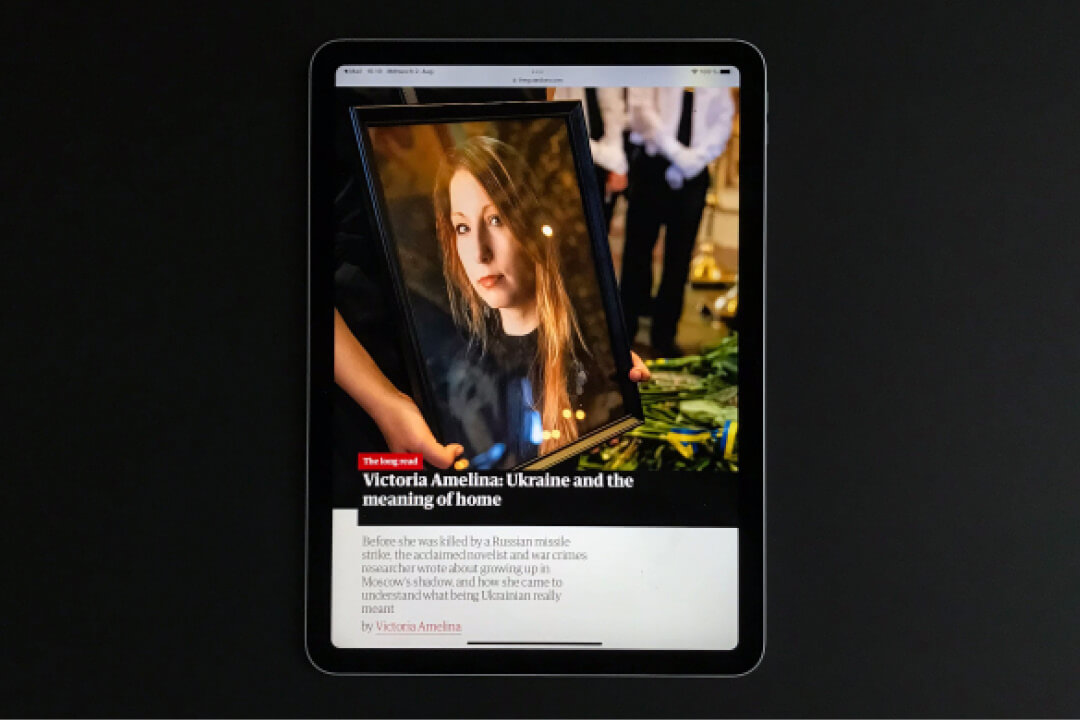
We wanted to read more of what Victoria Amelina had written and so we came across the collection of texts “EVERYTHING IS WORSE THAN UKRAINIAN LIFE”.
Writers, journalists, artists, historians
These are the authors who describe in their texts how the horrific sacrifices that Ukrainians suffer every day in the fight against Russian aggression are receiving less and less attention.
Many people ignore the war or seem to have come to terms with the fact that Ukraine is fighting for its freedom and the freedom of the West. Even acceptance of Ukraine’s self-determination and desire to belong to the West is often too much to ask.
Some of the authors see one reason for this in the almost complete dominance of Russia in Slavic studies courses. To this day, there is hardly a single chair that deals with Ukraine.
The many negative and disparaging narratives that Russia has been communicating about Ukraine for decades have been effective and have led to a widespread lack of respect for this “peculiar peasant country”.
In Germany in particular, the authors note an understanding of history that simply ignores Ukraine and its victims over many decades. “Never again” did not and does not seem to apply to the Ukrainian victims of past wars and the present.
In many cases, people still naively believe in the warm Russian soul and ignore the consistent militarization of Russian society and the clearly formulated imperialist claims that the Kremlin has been unmistakably formulating and promoting for decades. The Russian atrocities in Chechnya, Georgia, Transnistria, Syria and many other countries have been and are simply ignored.
The American professor of history Timothy Snyder puts it this way “Business with Moscow autocrats was morally justified (in Germany) by the Second World War. The Ukrainians were seen as troublemakers who stood in the way of this history.”
“Russia has not touched you”
In many of their texts, the authors defend themselves against many so-called experts who, in talk shows, articles and open letters, believe they can give Ukraine advice from a secure Western position on how it should behave, which territories it should give up and why it should negotiate with the aggressor and about what.
The Polish writer and publisher Szczeon Twardoch says: “Dear West German intellectuals: You have no idea about Russia. Russia has never touched you, neither you nor your ancestors. You don’t understand it – you understand Eastern Europe even less – because while Russia may fascinate you, our Zubowkas and Ruritanias will always remain terra nullius for you.”
“Finally listen to Poland, Lithuania, Latvia, Estonia, all countries that have their “skin in the game”, Russia’s unfortunate neighbors, in whose family and collective memory is stored very drastically what that means – Russki Mir.”
Westsplaining explained
The term “Westsplaining” is used to describe the “fundamentally arrogant, but ignorant and naïve view” of many people in Western Europe and America “on Central and Eastern Europe in general” and their “position of the know-it-all, which seems immune to the suffering and struggle of Ukrainians in particular”.
The texts describe in clear terms the war crimes that have been committed in Ukraine and continue to be committed every day. This clear description seems necessary, because all too quickly a news report that only talks about war crimes is ignored and does not trigger a reaction.
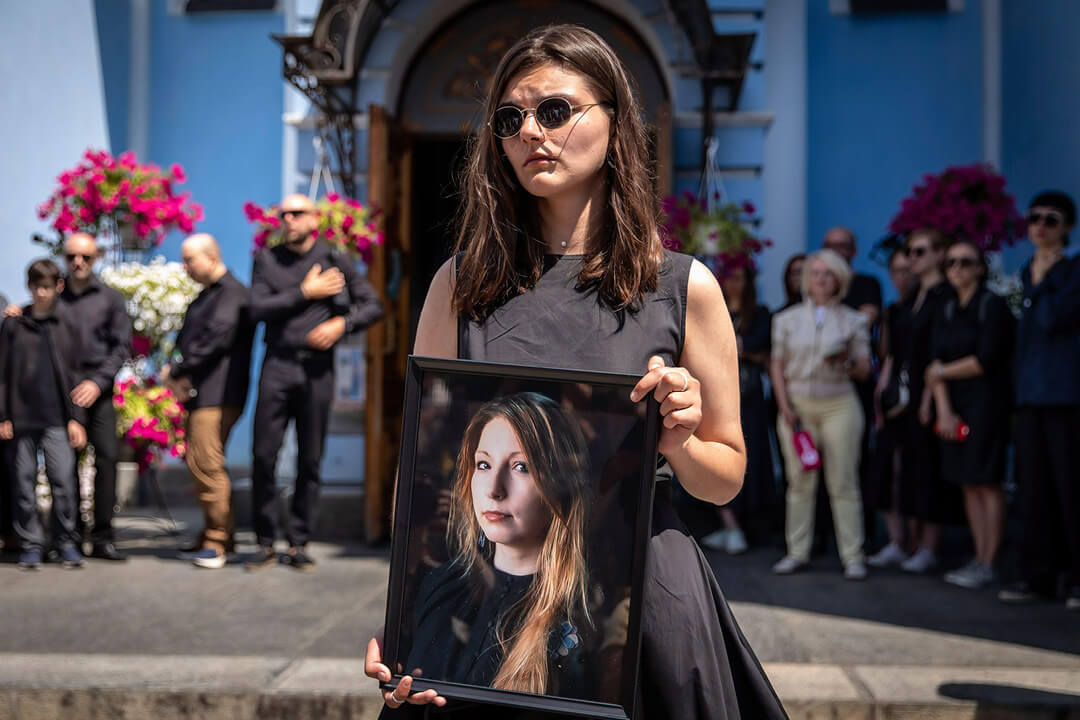 The Victoria Amelina memorial service in Kiev, July 2023 © Sopa Images, Alamy Stock Photo
The Victoria Amelina memorial service in Kiev, July 2023 © Sopa Images, Alamy Stock Photo
According to the authors, the people in the Baltic states know exactly what they are talking about when they talk about Russia’s claims to power and atrocities. Many self-proclaimed experts, on the other hand, have no idea in their opinion.
All these difficult topics, as well as the question of whether Ukrainian authors can continue to write in Russian and what attitude towards Russian artists is appropriate, are described in intelligent, humorous, historically grounded texts, all of which are well worth reading.
More topical than ever
The majority of the texts were written in 2022 and are unfortunately more relevant than ever. Russia’s attempt to destroy Ukrainian culture, which is declared non-existent, piece by piece, continues mercilessly on a daily basis. The term genocide is appropriate.
“Ukrainian lives, paintings, museums, libraries, churches and manuscripts are burning. They are burning now.”
The participants of the NATO summit on July 11 and 12, 2023 in Vilnius declared their solidarity with Ukraine, but no more.
“The West today thinks it can avoid a Third World War – perhaps that is true. But our intuition, our educated guess, based on a hundred years of experience, suggests that this war has already begun and that there is no going back to the world before. Of course, this does not mean that the solution is to send NATO troops to Ukraine now; it does not mean that escalation should not be avoided. It is enough to say: Nato is at war with Russia. Someone has to lose this war. We here in Osteropa would prefer it if that someone is the old Russia. “ Szczepan Twardoch
And even then, many authors fear that Western countries could still be deceived by a successor to Putin, who, perhaps educated at an elite European university, would only appear more Western and more integrated on the outside, but behind whose façade lies the same claim to power to recreate the former Soviet Union.
The last contribution in this collection of texts is by Serhij Zhadan and is entitled “When we fall silent, evil feels safe”.
The collection of texts “ALLES IST TEURER ALS UKRAINISCHES LEBEN” has been published by edition.fotoTAPETA_FLugschrift. Read this book, give this book as a gift. A small but important contribution to at least listen and show respect.
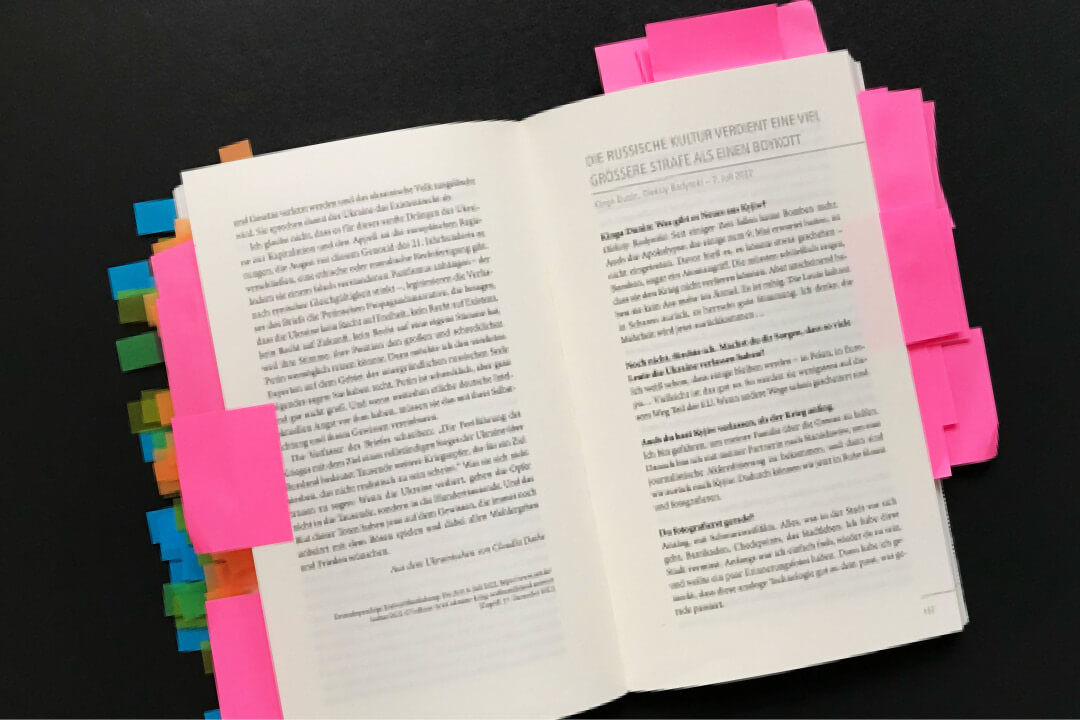
#Advertising #Product placement #Independent recommendation

